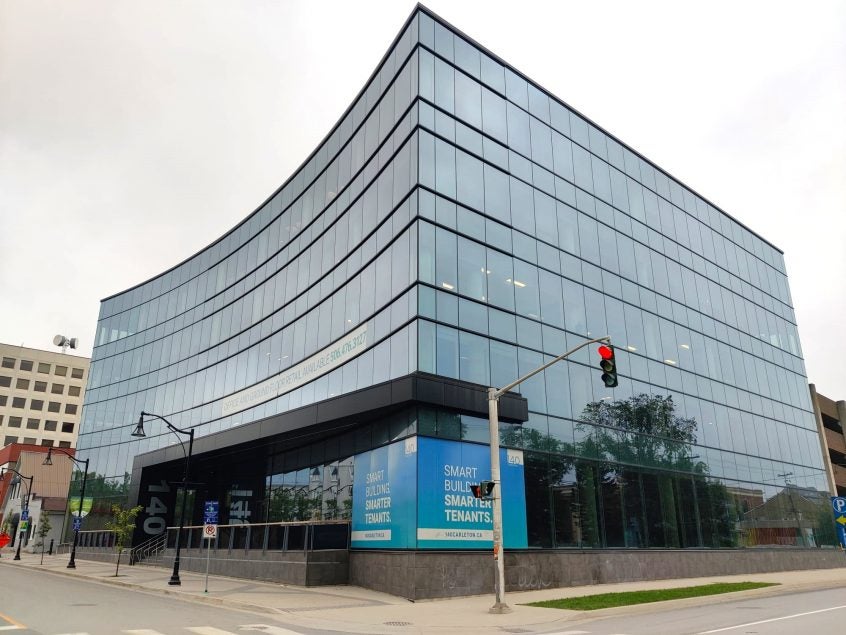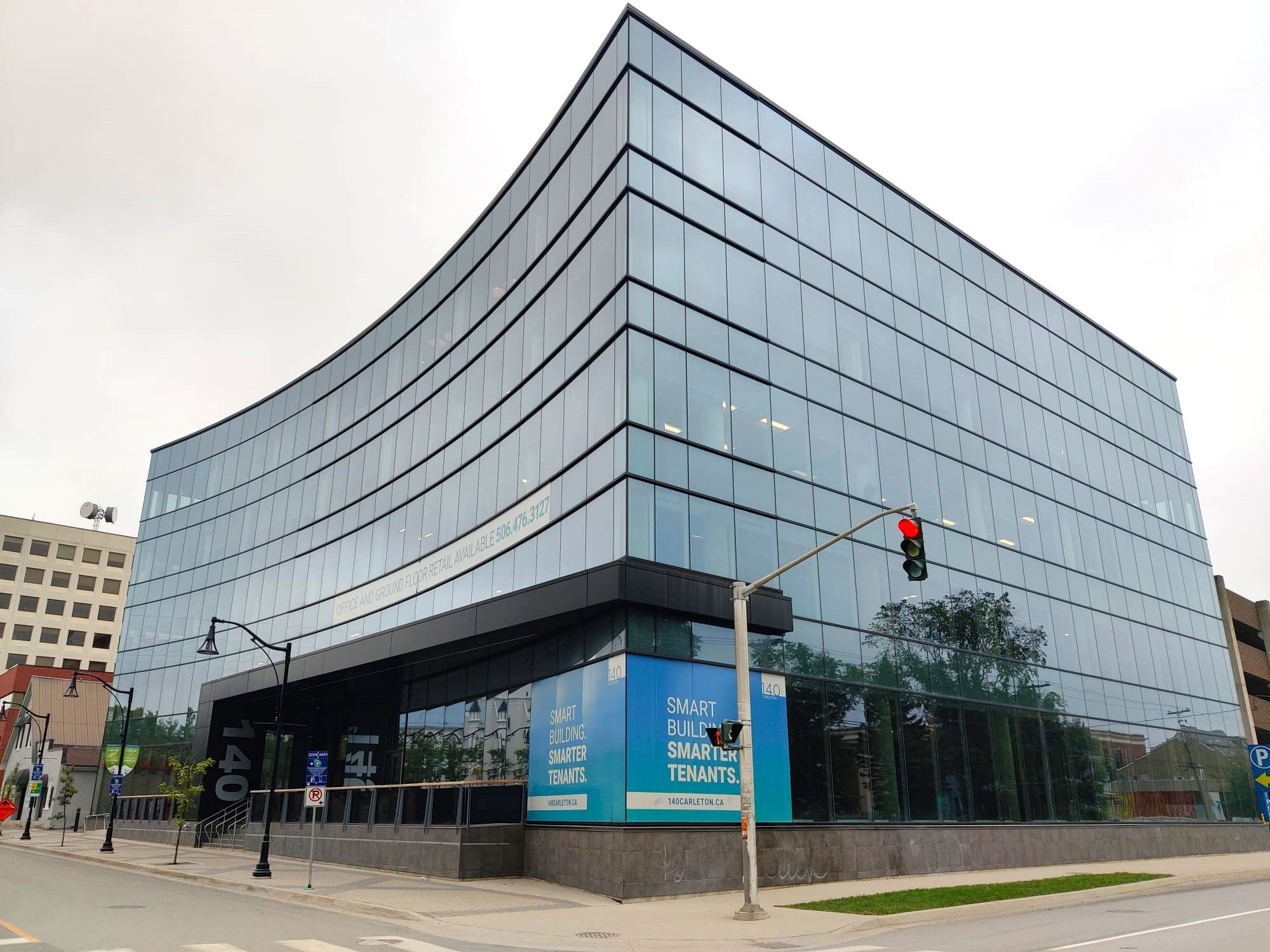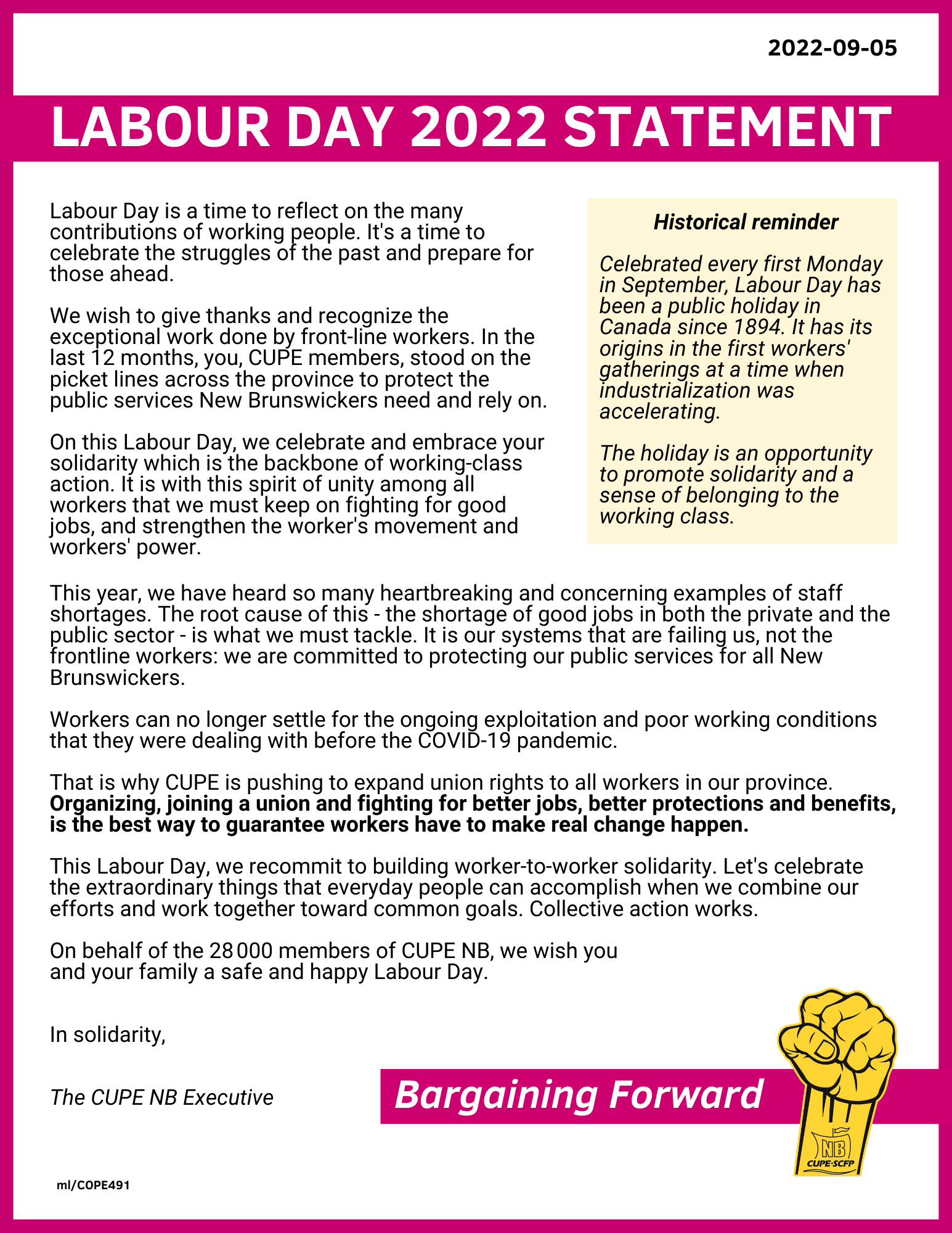The anti-worker bill known as “Bill 23” was rammed through Friday, December 16, 2022. Let’s mobilize to urge MLAs to repeal this bad law, or assume the consequences that will follow in not doing so.
Without consultation from any unions, PC MLA and Labour Minister Trevor Holder significantly amended the NB Public Labour Relations Act (PSLRA) through Bill 23. The PSLRA concerns the rules on all unionized worker-employer relations in the provincial public sector. It covers rules around lockouts, strikes, designations, picketing, arbitration, negotiations and much more. Instead of improving labour relations, Bill 23 tilts the balance in the government’s favour.
- Before locking out its own workers, the government must only give a 24-hour notice to the affected employees, but workers’ unions must give a 72-hour notice before commencing strike action.
- The Act will allow changes to designation levels (how many workers can and cannot go on strike) to be made later in the bargaining process, even after a deadlock in bargaining has been declared.
- The Act will also allow the replacement of designated workers who are absent and allow the employer to fill vacant and unfilled positions with anyone, including private for-profit contractors.
- The Act will allow the government to significantly change the work schedules of essential workers during a strike or lockout
- the Act will force arbitrators to consider restrictive criteria during the binding arbitration process to reduce wage adjustments, such as comparison with the private sector, other provinces and the province’s “ability to pay”.
These changes create instability and legalize scabbing. This will generate unnecessary friction during conflicts.
Instead of focusing on fully staffing our public services in times of labour peace, Holder and PC MLAs are only caring about staffing if and when it gives more strength to their lockouts. This bill must be overturned.



















